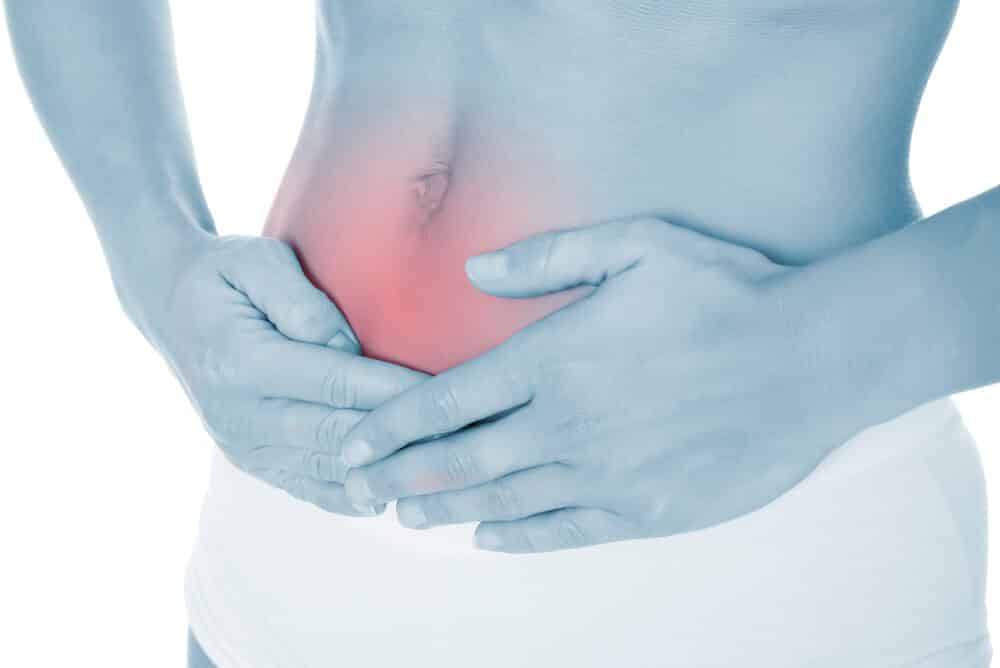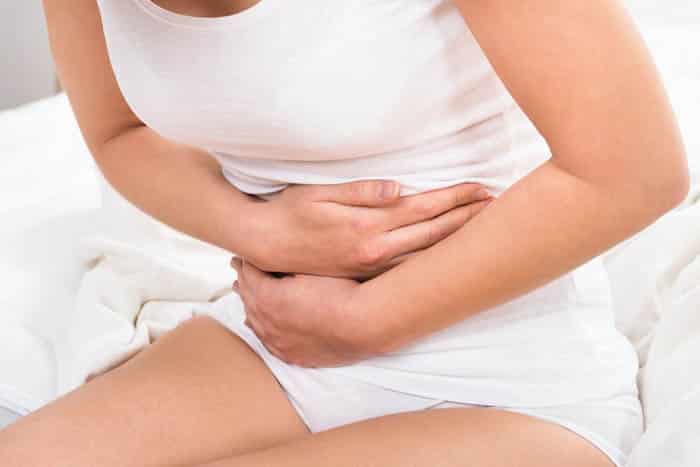
Pain in the small intestine (appendicitis) | Cause, diagnosis, symptoms and treatment
Pain in the small intestine? Here you can learn more about pain in the appendix, as well as associated symptoms, cause and various diagnoses of appendicitis. Appendicitis and appendicitis should always be taken seriously. Follow and like us too Our Facebook page for free, daily health updates.
It is still uncertain what the main function of the appendix is. One wonders if it contributes to the fight against certain types of infection - but it is not entirely certain. Remember that it is better to contact the doctor once too much than once too little.
Appendicitis is the most common cause of appendicitis. In case of severe inflammation, the appendix can rupture - and it can be a medical emergency. You will find the 10 centimeter long appendix where the small intestine meets the large intestine - down on the right side of the stomach.
Are you wondering something or do you want more of such professional refills? Follow us on our Facebook page «Vondt.net - We relieve your pain»Or Our Youtube channel (opens in new link) for daily good advice and useful health information.
Cause and diagnosis: Why did I have a pain in the appendix?

Causes
The small intestine becomes inflamed if a blockage occurs that allows waste and similar piles to accumulate. Such blocking may occur due to:
- Stool
- Bacteria
- Enlarged tissue folds
- Mage Tears
- Ulcer
- parasites
- Virus
Allowing such a blockage will lead to a progressively worsening appendicitis and infection. If the infection gets bad enough this will lead to necrosis (tissue death due to lack of blood supply) and the inflammation spreads to the stomach.
diagnoses
As mentioned, appendicitis is by far the most common cause of appendicitis, but it is worth mentioning that the following diagnoses can cause similar pain and in some cases be misinterpreted as appendicitis:
- Crohn's disease
- gallbladder Disease
- stomach Problems
- intestinal Blockage
- Ulcerative colitis
- Urinary infection
appendicitis
The most common cause of appendicitis. In such an inflammation, it is important to detect it early so that one can receive treatment before any infection occurs.
Also read: - 6 Early Signs of Appendicitis
Symptoms of pain in the appendix

Having pain in the appendix can be both daunting and quite painful. The pain and symptoms will vary depending on the cause and any inflammation.
Symptoms of appendicitis
Common symptoms of appendicitis usually appear in a short time - 24 hours. The clinical signs and symptoms usually occur between 4 and 48 hours after the problem itself has first occurred.
Appendicitis causes distinct pain in the lower, right part of the abdomen - and touching there can be extremely pressure-sensitive and painful.
Common symptoms of appendicitis include:
- Fever
- Constipation
- Nausea
- Abdominal pain in the lower right abdominal region - which runs from the navel and further down towards the abdomen on the right side
- Vomit
- Exhaustion
- malaise
We want to emphasize the importance of contacting a doctor if you experience acute pain in the right, lower abdomen - and this is especially important if you also experience fever and nausea. With a ruptured appendix, the pain can be extreme.
How is appendicitis diagnosed?
The clinician will make a diagnosis based on prehistory, physical examination and laboratory tests, Typical samples taken are imaging (x-ray, MRI and CT scan) and extended blood tests. The blood tests may show an elevated content of CRP (c-reactive protein) and white blood cells if there is an ongoing inflammation / infection of the appendix.
In children, diagnostic ultrasound is normally used to diagnose appendicitis. There is also a specific clinical test called the McBurney test - this means that the doctor or clinician feels the affected area 2/3 out and down to the right from the navel towards the front of the pelvis.
A clinical trial will also:
- Check for stomach tenderness and nearby structures
- Examine the breathing pattern
Overall, the responses from the clinical trials performed may provide the basis for proper diagnosis. If there is suspected acute appendicitis (fractured appendicitis) then this is a reason for urgent surgery.
Treatment: How to treat appendicitis and appendicitis?
The treatment is, naturally enough, dependent on what phase the inflammation itself is in - and whether the appendix itself has ruptured or not. Appendicitis can be treated in two ways:
1. Antibiotics: In less severe cases where the appendicitis has not burst, an antibiotic course may be enough. However, if the appendicitis has become large enough (or has ruptured) then more drastic treatment methods will be required.
2. Operation (removal of the appendix): In severe appendicitis, but without the appendicitis itself, it will be possible to use only a minor surgical procedure. The surgeon will then make a small incision in the navel and remove the appendix by pulling it out of this small incision. The surgical wound will normally see a doctor within 2 to 4 weeks after such surgery.
If the appendix has ruptured, urgent surgery applies. With a ruptured bowel, the infection can spread to other parts of the stomach and infect them as well - which can simply lead to fatal infections.
Summarizeringing
Do not ignore the pain and symptoms - it is the body that is trying to tell you something important. If you experience acute pain in the lower, right part of the abdomen, we advise you to contact a doctor immediately.
Do you have questions about the article or do you need more tips? Ask us directly via our facebook page or via the comment box below.
Recommended self help
Reusable Gel Combination Gasket (Heat and Cold Gasket): Heat can increase blood circulation to tight and sore muscles - but in other situations, with more acute pain, cooling is recommended, as it reduces the transmission of pain signals.
Due to the fact that pain in the stomach and intestine can also cause back pain, we recommend these.
Read more here (opens in new window): Reusable Gel Combination Gasket (Heat & Cold Gasket)
NEXT PAGE: - This is how you can know if you have a blood clot
Click on the image above to proceed to the next page. Otherwise, follow us on social media for daily updates with free health knowledge.
 Follow Vondt.net on YOUTUBE
Follow Vondt.net on YOUTUBE
(Follow and comment if you want us to make a video with specific exercises or elaborations for exactly YOUR issues)
 Follow Vondt.net on FACEBOOK
Follow Vondt.net on FACEBOOK
(We try to respond to all messages and questions within 24-48 hours. We can also help you interpret MRI responses and the like.)
Frequently asked questions about appendicitis, appendicitis and appendicitis
Can one die of appendicitis?
- Yes, you can die from appendicitis if the infection becomes so severe that it spreads to other parts of the stomach. Untreated, the appendix will rupture due to inflammation pressing from the inside in an area with limited space - eventually the pressure will be so great that the intestine itself ruptures and the inflammation then spreads outwards.





Leave a reply
Want to join the discussion?Feel free to Contribute!